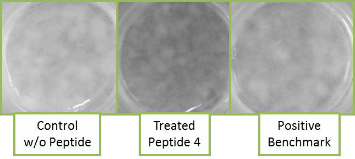Upregulation of the melanin content of the skin
Researchers at the University of Bradford have discovered a mechanism for the modulation of melanin in the epidermis with the ability to promote up regulation in melanin content at the skin surface.
Professor Desmond Tobin’s lab has a world-leading understanding of how pigment transfers between cells in skin that is being leveraged by collaboration with large personal care companies towards improved skin tone technology.
This has also led to the discovery of how to up-regulate skin colour naturally. We believe ‘sunless’ tanning has commercial potential and has shown strong growth in recent years in the body and face care markets, due to well publicized risks of UVR exposure for tan generation.
Prof Des Tobin’s group has identified a novel route to modulate the colour of skin that involves mimicking a natural protein-based cell signalling molecule in skin.
This natural signalling protein interacts with a receptor on the surface of melanocytes (cells making melanin in the epidermis).
Mimicking its action topically has the potential to generate a natural safe tan.
We have a ‘small peptide’ technology available that has been shown to darken skin when topically applied in vitro to the same or even better than the natural benchmark - see below.
These peptides have a low molecular weight and are therefore viable as topical agents for cosmetic benefit.
IP status - This technology is in national filings with granted patents currently in the US, Australia, Japan and China

